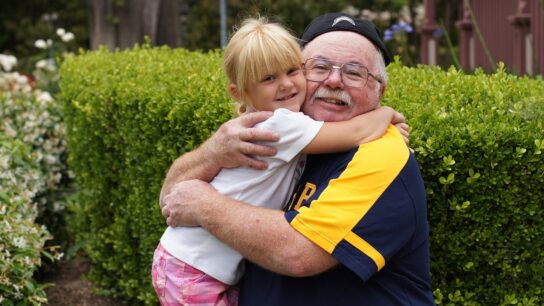Holidays are, hopefully, a time for fun, laughter, and creating wonderful memories with family and friends. But if you’re caring for an elderly parent with dementia or Alzheimer’s, celebrations can become a challenge filled with complex emotional issues. Whether your ailing mom or dad is still in their own home, your home, or a memory care facility, you need to take certain steps, and avoid other missteps, to ensure your holiday celebration goes as well as possible.
Let’s start with the “do’s”:
1. Do Understand Their Reality
You need to understand that your parent’s dementia may mean they experience confusion, agitation, and difficulty processing the present moment. Holidays can turbocharge those feelings due to changes in routine, unfamiliar faces, and increased sensory stimulation. Do your best to understand and empathize with their reality, and respond accordingly.
2. Do Simplify Celebrations
Maybe this year is the time to dial it back a bit. By simplifying the holiday celebration, you’ll be minimizing both your parent’s stress and yours. Scale back the decorations, limit the duration of the gatherings, or maybe stick with quiet and intimate events. Your goal should be to create a calm and familiar environment, promoting your parent’s sense of security and comfort.
3. Do Maintain Routine
Maintaining a familiar routine can provide a sense of stability and reduce anxiety for your parent with dementia. Try to stick to regular meal times, medication schedules, and daily activities as much as possible, even while the holiday festivities are occurring. If you’re taking your parent out to an event, plan accordingly so they’ll feel comfortable and supported.
4. Do Incorporate Familiar Traditions
While you’ll be adapting your celebration around your parent’s needs, recognize that familiar traditions can help bring up feelings of nostalgia and connection. Whether it’s baking their favorite holiday treats, listening to beloved songs, or reminiscing over old photos, see if you can honor your traditions in ways that are enjoyable, yet manageable, for your parent.
5. Do Communicate with Care
When discussing holiday plans with your parent, communicate with patience, empathy, and clarity. Use simple language, avoid overwhelming them with too many details, and be prepared to repeat information as needed. If your parent is living in a memory care facility, be sure to tell staff members about mom or dad’s needs and preferences during holiday festivities.
6. Do Respect Their Limits
It’s essential to recognize and respect your parent’s limits when it comes to any holiday celebration. While some folks with dementia may enjoy and actively participate in festivities, others may find them overwhelming and distressing. A large holiday gathering can be a negative trigger, so keep an eye on your parent’s cues and adjust your plans accordingly – even if it means scaling back or forgoing certain activities altogether.
Here are some tips about handling your parent if they do get agitated.
Let’s look at the problems that commonly arise and what you should not do:
1. Don’t Increase Confusion and Agitation
Holiday celebrations increase the chances that your elderly parent with dementia may experience increased confusion and agitation. Changes in their routine, seeing unfamiliar faces, and heightened sensory stimulation can all make them feel disoriented and distressed. It’s essential you anticipate these challenges and take proactive steps to minimize their impact.
2. Don’t Let Them Get Overstimulated and Fatigued
Holiday gatherings can involve loud noises, crowded spaces, and multiple simultaneous conversations, all of which can overwhelm a parent with dementia. Overstimulation can lead to fatigue, anxiety, and behavioral changes, such as agitation or withdrawal. To reduce these effects, look to create a quiet space where your loved one can retreat if they become overwhelmed. Limit their time at gatherings to prevent exhaustion.
3. Don’t Push Social Interactions if They Trigger Anxiety or Confusion
Parents with dementia may struggle with social interactions during holiday celebrations, making them feel isolated or frustrated. They may have difficulty following conversations, recognizing familiar faces, or remembering names, resulting in embarrassment or withdrawal. Encourage family and friends to engage with your parent in gentle, supportive ways, focusing on activities that promote connection and positive interactions.
4. Don’t Disrupt Sleep Patterns
Changes in routine and increased excitement during the holidays can disrupt your parent’s sleep patterns, leading to increased confusion and agitation. Don’t allow a celebration to upset their bedtime routine, limit caffeine and sugar intake, and try to create a calm and relaxing environment conducive to sleep.
5. Don’t Forget Challenges with Travel
Traveling during the holidays is hard enough; with elderly parents it can be extra difficult. If you absolutely have to travel, be aware that unfamiliar environments, long car rides, and disruptions in routine can lead to (even more) confusion and anxiety. Plan carefully, allowing plenty of time for breaks, and bring familiar items from home to help your loved one feel more comfortable and secure.
6. Don’t Forget Safety Concerns
Safety is always a priority when caring for a parent with dementia, but it becomes especially important during holiday celebrations. Decorations such as candles, Christmas lights, and electrical cords can pose hazards for parents with dementia, who may be prone to accidents or wandering. Take proactive measures to ensure a safe environment, such as removing potential hazards, supervising your loved one closely, and enlisting the help of family members or caregivers.
While holidays with a parent with dementia may present challenges, they also offer opportunities for connection, joy, and cherished memories. By understanding and addressing the problems that commonly arise, you can create holiday celebrations that are meaningful, enjoyable, and safe for mom or dad. When you prioritize their comfort, well-being, and sense of connection, you’re ensuring the holidays will be remembered as a time of love, compassion, and togetherness for everyone.



